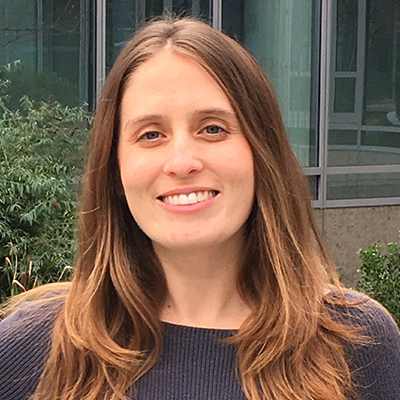
Many of my colleagues knew from a very early age that they wanted a career in meteorology and I’m no exception. I was fascinated by the weather and received a much-wanted barometer on my 12th birthday. Still, I wasn’t sure if I could handle the math and science requirements I would need for a degree. A professor in college encouraged me to do independent research, and I wrote my first journal article stemming from an internship at what is now the National Centers for Environmental Information in Asheville, NC. I am very grateful for the mentorship from several key figures through my undergraduate and graduate career for giving me the confidence to do the type of work I now do today. Today, I extend that appreciation to my wonderful colleagues within the National Weather Service and its partners who help to make my job interesting and fulfilling.
I work for a unique organization within the NWS called the Climate Prediction Center (CPC), where I’m focused on understanding and improving climate predictions from two weeks out to a year. Therefore, a lot of my experience and background is in climate science, and understanding the large-scale motions of our atmosphere and ocean that lead to predictability beyond the 7-day weather forecast. My main responsibility at CPC is to coordinate a team that updates the official status and forecast of the El Niño- Southern Oscillation (ENSO). In addition to preparing the updates, we do a lot of outreach with various users to interpret our forecasts and understand them—the ENSO Blog is one way we do this. I also engage in applied research, examining how ENSO influences weather and climate patterns globally—more recently we looked at how changes in the tropical Pacific Ocean eventually impacts the circulation over the Arctic!
The 2015-16 El Niño was easily the most significant climate event in my career to date. My colleagues and I were inundated with requests to explain what was going on and how it would potentially impact the weather and climate over the United States. We put together many briefings, gave talks, did hundreds of media interviews, and had to consistently pull together a clear, coherent narrative to communicate the event. Also, we assembled scientific analysis to make sure our statements were defensible, taking advantage of the real-time observational and forecast data produced within NOAA to stay on top of the event. The 2015-16 El Niño really crystallized the importance of having a strong fusion of science and service within NOAA.
I knew I was interested in a climate science career, but I did not know what form it would take. Because I grew up in the Washington DC area, I was excited to earn a short-term contract position within CPC that enabled me to to live in my hometown while working on interesting climate projects. Eventually, I was hired into a federal position and grew into the role of producing updates on ENSO. This was a strange, coincidental turn of events because the topic of my lengthy, high school thesis was on the major El Niño of 1997-98 and its impacts. To now be responsible for the team issuing these ENSO updates is, in retrospect, pretty surreal.
Without a doubt it’s the people who I work with, who both encourage and inspire me to try new ideas and make me feel like I belong to a team working for a higher purpose. The mission of the NWS is second to none, as our goal is to save lives and property, and support decisions that benefit so many people and industries.
Read the USAJobs announcements for positions in the NWS offices that interest you. Specific coursework is required for jobs in the atmospheric sciences, so make sure your college and graduate school transcripts cover them. Increasingly it is not enough to just have meteorology courses, but to also demonstrate that you work well with others and are a good communicator. Having other skills, like knowing programming languages or being able to design a website, can give you a leg up on other applicants. And, seek out internships or contract opportunities to get your foot in the door for a federal position.
Math and science coursework is the ticket to a career in meteorology. Even if that seems intimidating, still plunge in and see where it takes you. It also helps to have a lot of grit and be accepting of failure every now and then. Try to always build your personal toolbox by expanding your skill set, even if it’s not completely obvious to you how it might pan out later. Finally, make sure you continuously seek out opportunities that will challenge you and expand your perspective, even if it might seem slightly beyond your comfort level.